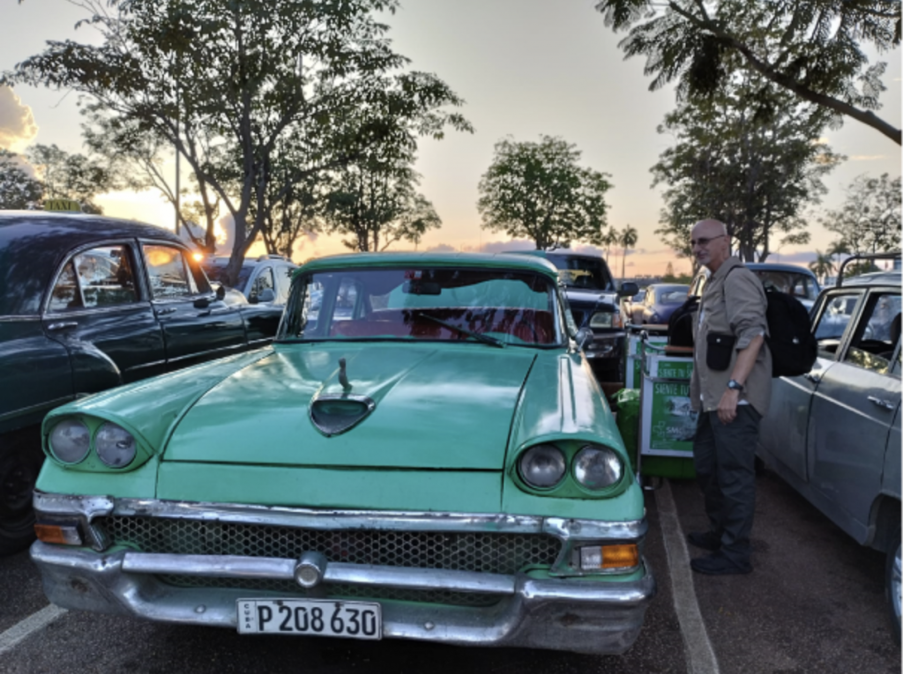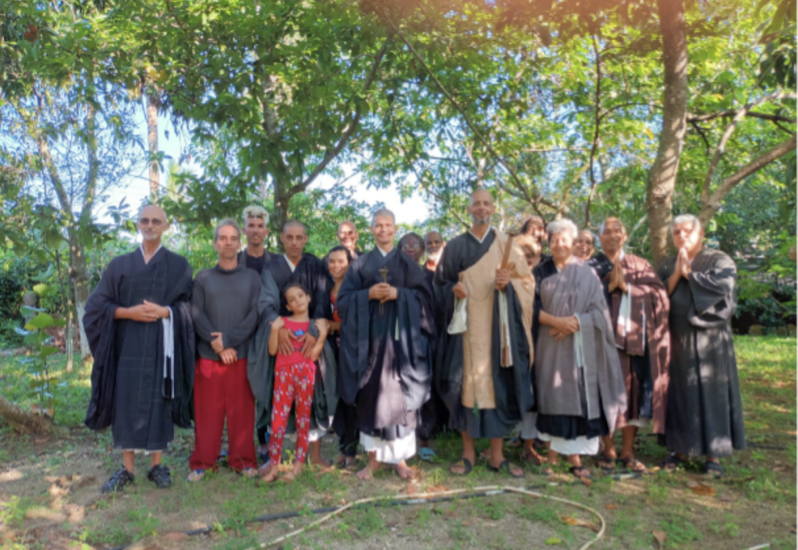By Belén Boville
Belén Boville is a journalist and writer. She is a Soto Zen Buddhist nun ordained by Master Barbara Kosen
We left Madrid with suitcases full of collected food to take to our fellow sangha members in Cuba. It had been less than a year since the project for a Zen temple in Cuba had become a reality. In October 2022, we had signed the deeds of sale and were now arriving with kilos of food and items that could not be found on the Caribbean Island. By the spring of 2023, we were hearing terrible stories about people starving and queuing for up to three days to get petrol.
It was mid-June, the start of summer, and our flight was full of Cubans bringing their families all sorts of products from the free world, or rather, the free world’s orgy of consumption.
There were huge queues at Barajas airport. Cubans make small bundles of clothes and belongings to take to their compatriots, wrap them in cling film and then plastic packaging so they can take more without weighing down the suitcase. In addition to hand luggage, each passenger was allowed two pieces of luggage, each weighing 25 kilograms, plus another ten kilos in the cabin. We flew with 2WFLY, an Iberostar charter company.
When we arrived at Havana airport, Maestro Michel Tei Hei, a tall, thin Cuban with a broad smile, was waiting for us. Amid the airport bustle, he mingled with the travellers and locals and soon found us. He had found a 1950s taxi, the old American junkers abandoned by their owners, which they call “almendrones.”
He picked us up in a big Almendron, repainted theatre green, and we put our big suitcases in the cabin and car boot.

On the road to the new temple, we passed several carts pulled by horses that were jumping, an alternative to the shortage of oil. Some people walked along the edge of a bumpy road or waited patiently at dingy bus stops. It was like going back in time to my childhood in Spain in the 70s, when people walked along the roads and highways in the villages and in the countryside.
The Kosen Shin-ji temple is twenty kilometres from Havana, in a rural area that reminded me of Tamaulipas, in the Mexican Cancer Tropic, where I lived for a few years. Everything was green, with lush vegetation and huge trees full of mangoes, avocados, pineapples, plums, coconuts, pomegranates, custard apples, bananas, oranges, and lime trees. Tall green trees, round and stunted, in palm or shrub form, all vegetation that provided coolness in the high temperatures of the day.
The name of the temple, Kosen-shin-ji, is a tribute to the Kosen Sangha, Masters Stefan and Barbara, and means “the wisdom of the hermit” in Japanese.
The temple is located in an area known as “La Lechuga,” which is lined with small houses, ranches with vegetable gardens, chickens, cows, and pigs. When you walk through this colony, the dogs are free, they are not tied up, they are not on leashes, and they are not wearing ridiculous clothes. They lie quietly on the road or path, watching you, wagging their tails and swatting away the flies. The children are playing in the street and smiling, their attention is not on a mobile phone or a tablet, but on the little dog, the puppy called “Nube”.
Everything is like a leap into the void, time has stopped. It feels like a different period, a time full of life.


